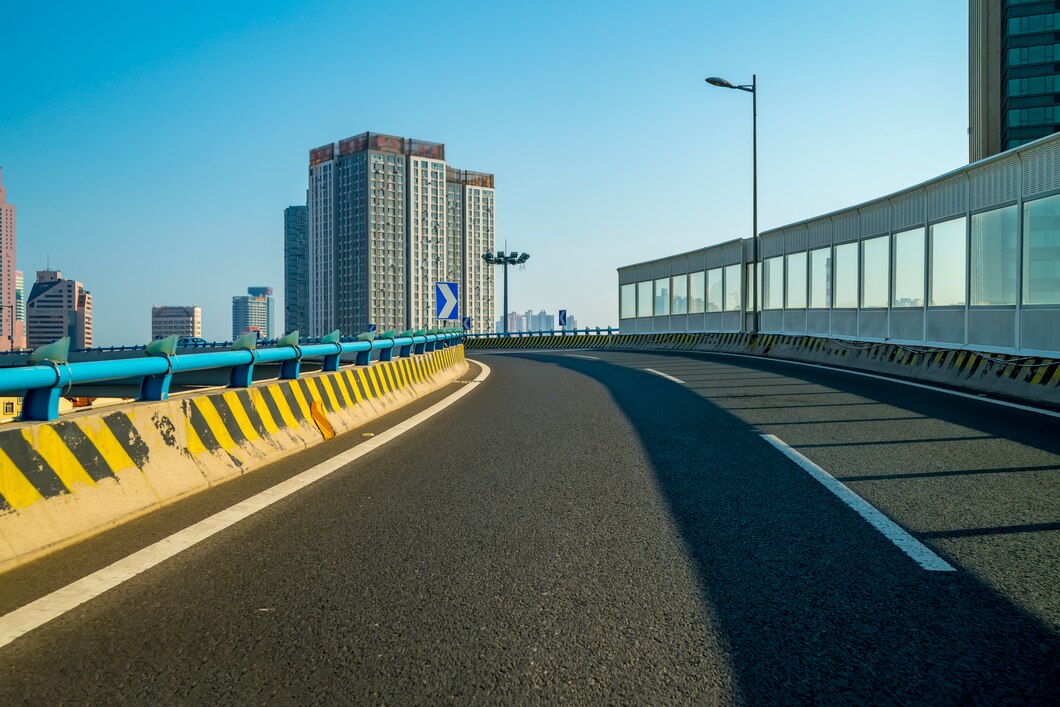The Road Ahead Paving the Way with Modern Asphalt Innovations
This post discusses the importance of road durability and longevity in infrastructure, focusing on the challenges for civil engineers and construction companies. It highlights recent innovations in asphalt paving, such as intelligent compaction and eco-friendly solutions, that improve road durability, reduce maintenance costs, and support sustainable transportation.
Traditional Asphalt Paving Methods and Their Limitations
Traditional asphalt paving has been the backbone of road construction for decades. Its process involves laying a mixture of aggregates, binders, and fillers on a surface and then compacting it into a solid layer. While this method has proven effective to a certain extent, it comes with its fair share of challenges.
One major limitation is its susceptibility to weather conditions. Traditional asphalt can become brittle in cold weather and soft in the heat, leading to cracks and ruts. These issues often necessitate frequent repairs, driving up maintenance costs and causing disruptions. Additionally, the energy-intensive nature of traditional asphalt production and application raises environmental concerns.
Furthermore, the reliance on non-renewable resources like petroleum for asphalt binders poses sustainability challenges. With growing awareness of climate change and environmental impacts, the need for more sustainable materials has become paramount. These limitations highlight the urgent need for innovative solutions that can overcome the drawbacks of traditional methods while enhancing road durability.
Recent Innovations in Asphalt Materials and Mix Designs
In response to the limitations of traditional asphalt, researchers and engineers have been developing innovative materials and mix designs to create more durable and sustainable roads. One exciting development is the advent of polymer-modified asphalt (PMA). By incorporating polymers into the asphalt mix, PMA offers improved flexibility and strength, making roads more resistant to temperature fluctuations and heavy traffic loads.
Another significant innovation is the use of recycled materials in asphalt production. Reclaimed asphalt pavement (RAP) and recycled asphalt shingles (RAS) are increasingly being used in new pavement mixes. Not only do these materials reduce the demand for virgin resources, but they also help divert waste from landfills, contributing to a circular economy.
Warm mix asphalt (WMA) is yet another promising advancement. By lowering the production and paving temperatures, WMA reduces energy consumption and emissions during the construction process. This environmentally friendly alternative also allows for longer haul distances and extended paving seasons, expanding the possibilities for road projects in various climates.
Advanced Paving Technologies and Equipment
Innovations in asphalt paving extend beyond materials to include advanced technologies and equipment that enhance the efficiency and quality of road construction. Intelligent compaction is one such technology that uses real-time data and sensors to ensure optimal compaction of asphalt layers. This results in more uniform density, improved structural integrity, and reduced likelihood of premature pavement failure.
Another groundbreaking development is the integration of GPS and machine control systems in paving equipment. These technologies allow for precise control over the paving process, minimizing waste and maximizing accuracy. The result is smoother surfaces, reduced material usage, and faster project completion times.
Furthermore, innovations like 3D asphalt paving are revolutionizing the way roads are built. By using 3D modeling and automated machines, this technology ensures precise thickness and smoothness, eliminating imperfections that can compromise road performance. The synergy of these technologies is not only transforming how roads are constructed but also elevating the standards for quality and durability.
Benefits of Modern Asphalt Paving Techniques
Adopting modern asphalt paving techniques offers a multitude of benefits that extend beyond road durability. One key advantage is the potential for cost savings. While the initial investment in advanced materials and technologies may be higher, the reduced need for maintenance and repairs, including asphalt crack repair like those available in Salt Lake City, can lead to substantial long-term savings. This economic efficiency is especially attractive to road construction companies and municipalities operating within budget constraints.
Environmental sustainability is another compelling reason to adopt modern techniques. By using recycled materials and reducing emissions through warm mix asphalt, these methods align with global efforts to minimize the carbon footprint of infrastructure projects. This commitment to sustainability resonates with both communities and regulatory bodies, enhancing the reputation of construction companies that prioritize eco-friendly practices.
Lastly, the increased longevity of roads constructed using innovative techniques translates to greater convenience and safety for road users. Fewer interruptions for maintenance and repair mean smoother traffic flow and decreased risk of accidents caused by road defects. The positive impact on public perception and satisfaction further reinforces the value of investing in innovation.
Conclusion
Now that we have explored the evolution of asphalt paving and its potential for future advancements, it is evident that modern techniques are transforming the industry and setting new standards for road construction. With a focus on durability, sustainability, efficiency, and safety, these innovations offer significant benefits to both construction companies and the larger community.






